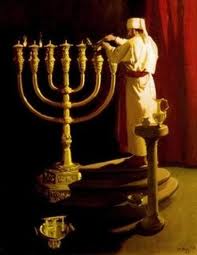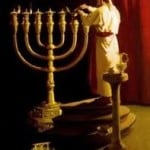Darkness always fills the void when light ceases to shine. It is critical to remember that darkness is simply the absence of light, and not to give darkness itself too much power and strength. Yet, there are times that darkness seems to engulf the light. There are times darkness seems to work under its own power and seems to overwhelm even the purest of light.
That has been true for countless generations, yet today, we are living in a time in which we are experiencing the first sparks of dawn. The confusion and the darkness is slowly beginning to dissolve and vanish. Events, challenges and calamities are beginning to interconnect in such a way so that their purpose is slowly becoming revealed and understood. It then becomes our responsibility to make those connections and by so doing, bring light in the world. That is not an easy task as mortals by their nature invariably hear insight and revelation as a judgment on his or her own character.
Those who truly want to bring light into this world must then learn the true art of “becoming a lamplighter” . In the words of Rabbi Avraham Yitzchak Kook, the first chief rabbi of the Land of Israel, ” …the purely righteous do not complain of the dark, but rather increase the light; (Arpilei Tohar p. 27)
What lessons can we then learn from the first lamplighter?
“ Hashem spoke to Moses, saying: :. Speak to Aaron and say to him: “When you light the lamps ( Behaalotcha Et Hanerot,) the seven lamps shall cast their light toward the face of the menorah.” :. Aaron did so; he lit the lamps toward the face of the menorah, as Hashem had commanded Moses.( Leviticus 8:1-3)
First we are told that it is Aaron that is to light the lights. If the menorah in the Temple represented the light of G-d why would we need an “Aaron” to light it. We know that the first fire came down miraculously,” And there came forth fire from before Hashem, and consumed upon the altar the burnt-offering and the fat; and when all the people saw it, they shouted, and fell on their faces. “(Leviticus 9:24). Why did that miracle not continue?
This is so because Hashem wants us to participate in His creation. As Rabbi Menachem Mendel of Vitebsk declared, “Man is the language of G-d.” Hashem uses us to represent Him, to reveal Him and to dispense His light.
Yet at times that too can become a dangerous venture. The lamplighter can become so enamored of his job that he begins to believe that he is the source of the light. So the Torah continues to tell us;
“Aaron did just so; he lit the lamps toward the face of the menorah, as Hashem had commanded Moshe (ibid 8:3). Obedience to the higher calling is the prescription for spiritual balance.
There is one more important aspect, critical to being a lamplighter. A lamplighter must believe in the power of the wick to carry the flame. The first verse in the Torah portion is more literally translated as ; “When you raise the lamps( Behaalotcha Et Hanerot,) the seven lamps shall cast their light toward the face of the menorah.(ibid 8:2).
Rashi explains that he is required to kindle the lamp until the flame rises by itself ( tractate Shabbat 21a).That is to teach us that the lamplighter must hold the flame to the wick until a flame arises of its own accord.
The Lamplighter must know that his role is to ignite that latent potential within the soul of every man and woman as proverbs says ” The soul of man is the lamp of HaShem” (Proverbs 20:27).What generally keeps individuals from Hashem is their feeling of being unworthy of such a relationship. We forget that G-d’s breath ( neshima) rests within each one of our souls ( neshama).
Aaron and all the lamplighters who follow must learn to spark that breath in every one that they encounter so that the “flame arises of its own accord”. That can only be done with love.
As Hillel’s declares in his famous statement in Pirkei Avot, “Be like the sons of Aaron,” he said. “Love peace and pursue peace, love people and draw them near to Torah.” As a result the light of Hashem will truly light and dispel the darkness.
( le-refuat Yehudit bat Golda Yocheved)

